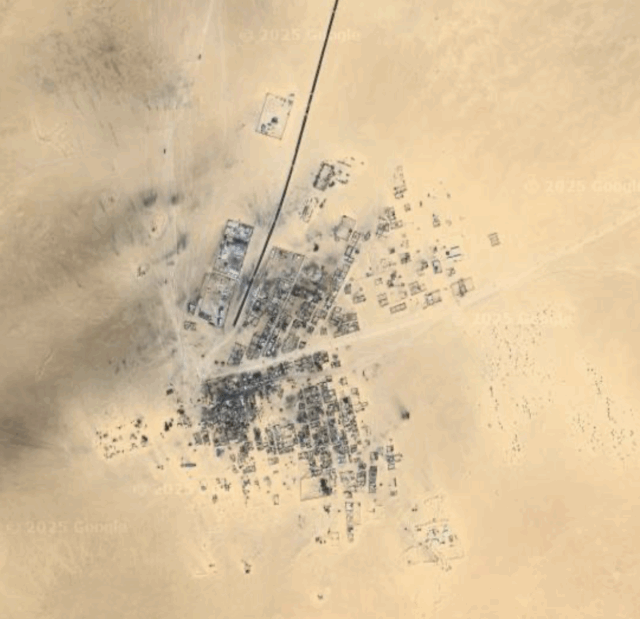
Brief: JNIM Attacks in Benin and Niger Threatening Borders
Publication: Terrorism Monitor Volume: 23 Issue: 7
By:

Executive Summary
- JNIM is expanding both south and north, conducting new attacks in Benin and Niger nearing the borders of Algeria and Nigeria—showing ambitions to control a trans-Sahelian corridor that mirrors historical Islamic polities.
- The group is consolidating control in central Mali, potentially preparing for a siege of Bamako, while deliberately avoiding the governance burdens that weakened past jihadist administrations.
- JNIM’s long-term trajectory hinges on strategic choices: whether to govern territory, assault regional capitals, or seek limited legitimacy akin to the Taliban or HTS—each with major implications for regional stability and Western counterterrorism policy.
Jama’at Nusrat al-Islam wal-Muslimin (Arabic: جماعة نصرة الإسلام والمسلمين, “Group for the Support of Islam and Muslims,” JNIM) has conducted attacks since April in Benin, including near the border with Nigeria, highlighting the threat of the group’s expansion in coastal West Africa (France24, April 24). This trend has been ongoing for several years, as JNIM has operated along the borders of Senegal, Ghana, Côte d’Ivoire, Togo and now Benin. Yet, JNIM’s September 27 attack at the Assamakka border crossing in Niger (adjacent to the Algerian border) highlights how the group’s operational reach is also expanding northwards (X/@Soleilduniger, September 29).
The Assamakka attack killed six Nigerien soldiers, while JNIM asserted it had taken control of the border post. JNIM rarely conducts attacks near the Algerian border, which has otherwise been relatively calm since the weakening of al-Qaeda in the Islamic Maghreb (AQIM) and the death of its leader, Abdelmalek Droukdel (Arabic: عبد المالك دروكدال), in a French special forces operation in northern Mali more than five years ago (Al Jazeera, February 6, 2020). However, control of the Niger–Algeria border post, as well as operations near the border posts alongside littoral West African states, indicates JNIM’s ambitions (if not also capabilities) to eventually operate in a wide swath of territory throughout West Africa that roughly corresponds to areas of pre–colonial Islamic states.
JNIM is expanding its peripheries and consolidating its presence around the Malian capital of Bamako, and could likely implement a siege of the city—if not yet fully invade it—in the near future. On October 3, JNIM’s media wing, al-Zallaqa (Arabic: مؤسـسة الزلاقة), released a video of the group’s fighters standing over the corpses of Malian soldiers after JNIM ambushed them on the road from Bamako to Segou (X/Boswall_Jacob, October 3). Only days before this, JNIM released another video of its fighters driving through towns in Segou that the group had taken over, showing the comfort and regularity of the group’s interactions with civilians (x/SimNasr, September 28).
One of the key questions regarding JNIM’s future is whether the group will seek to not just take over territory but govern it. Thus far, JNIM has preferred to make regional governments, especially in Mali, Burkina Faso, and Niger, unable to govern much of their rural areas—but has not sought to formally replace them. JNIM may determine it does not have the resources to govern, nor is it willing to risk harming its image by governing poorly.
A second question that remains to be seen is whether JNIM will eventually siege capitals, such as Bamako or Ouagadougou, like it has done to smaller towns throughout both countries. JNIM thus far seems to have decided to avoid incursions into capitals, considering that it lacks personnel or resources to consolidate control over such large populations, just as it is wary of governing in the countryside.
Lastly, another question arises as to whether JNIM may moderate, or at least accept some modicum of international legitimacy, if it captures a state, like al-Qaeda-aligned jihadists in Hay’at Tahrir al-Sham (Arabic: هيئة تحرير الشام, “Committee for Liberation of the Levant,” HTS) in Syria, or the Taliban in Afghanistan. JNIM’s Tuareg leader Iyad ag Ghaly (Arabic: إياد أغ غالي), a former Malian diplomat himself, has expressed loyalty and admiration for both groups (Militant Leadership Monitor, February 19, 2012; France24, June 24, 2012). However, he has still not indicated that JNIM would cease terror and adopt a more moderate course of engagement with the broader international community.



